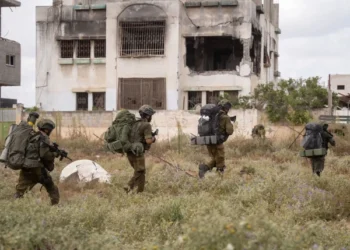CALI, COLOMBIA – A devastating truck bomb blast in Colombia’s third-largest city, Cali, has left the nation in shock, killing at least five people and injuring more than 36 others. Authorities have condemned the attack as an act of narco-terrorism, underscoring the persistent challenges the country faces in its ongoing struggle for peace and stability.
The Attack: A Devastating Explosion Near Military Facilities
According to Colombian police and local officials, the explosion occurred late Sunday night near a military aviation school on the outskirts of Cali. The truck bomb appeared to be deliberately placed to target security and military installations, though the sheer force of the blast also wreaked havoc on nearby civilian infrastructure.
Residents reported that the explosion was so intense that it was heard several kilometers away. Windows were shattered, homes were damaged, and panic swept through the affected neighborhoods. Authorities immediately evacuated a nearby school and several public buildings as a precaution against potential secondary explosions.
Eyewitness Héctor Fabio Bolaños, 65, described the terrifying scene:
“A powerful explosion occurred near the air base. There were screams everywhere, and several houses collapsed. People were running in panic, not knowing what had happened.”
The city’s mayor, Alejandro Ader, confirmed the initial death toll of five and added that the number of injured had climbed to 36. Hospitals across Cali were placed on high alert, with emergency services rushing victims to medical facilities.
Immediate Security Measures: Lockdown and Rewards
In the wake of the attack, authorities imposed temporary restrictions on heavy vehicles entering the city, fearing additional explosive devices might be smuggled in. Mayor Ader also announced a reward of $10,000 for any information that could lead to the identification and capture of those responsible for orchestrating the bombing.
Security forces, including the Colombian army and police, immediately cordoned off the blast site and began a full-scale investigation. Bomb squads were deployed to ensure no additional explosive devices remained in the vicinity.
Narco-Terrorism Suspicions: Who Could Be Behind the Attack?
While no group has officially claimed responsibility, Mayor Ader labeled the incident as the work of narco-terrorists. Colombia has long struggled with the intersection of drug cartels, left-wing guerrilla movements, and right-wing paramilitary groups, many of whom have engaged in violence to protect their interests.
This attack comes just months after the Central General Staff (EMC), a dissident faction of the Revolutionary Armed Forces of Colombia (FARC), claimed responsibility for 24 coordinated bomb and shooting attacks in Cali in June, which left seven people dead.
The EMC, unlike other former FARC members, rejected the 2016 peace deal that was intended to end more than five decades of armed conflict in Colombia. Instead, they have expanded their operations, reportedly increasing their activities ahead of the 2026 general elections.
Colombia’s Fragile Peace Process Under Strain
The Cali bombing serves as a grim reminder of the fragility of Colombia’s peace process. The historic 2016 peace accord signed between the Colombian government and the FARC was hailed globally as a turning point. However, several factions within FARC splintered and refused to demobilize, continuing to wage violence under new banners such as the EMC.
Experts argue that drug trafficking remains a major stumbling block. Colombia is the world’s largest producer of cocaine, and armed groups often rely on narcotics smuggling to finance their operations. Cities like Cali, once synonymous with the infamous Cali Cartel, still face the shadows of drug-related violence decades later.
Cali: A City Caught Between Progress and Violence
Cali, often celebrated for its vibrant nightlife, salsa dancing culture, and tourism, has struggled with its reputation as a hub for drug cartels and violent crime. During the height of the Cali Cartel’s power in the 1980s and 1990s, the city was plagued with bloody turf wars and assassinations.
In recent years, local authorities have worked hard to rebrand Cali as a safe and modern city, attracting investment and tourism. Yet, the latest bombing threatens to undermine these efforts, raising fears of a resurgence of narco-related violence in the region.
Eyewitness Accounts: Fear and Chaos on the Streets
Survivors and witnesses described scenes of absolute chaos following the explosion. Many reported being thrown off their feet due to the shockwave. Parents frantically searched for children as schools nearby were evacuated. Shops and small businesses in the blast zone suffered significant damage, adding to the financial toll on residents.
Maria Torres, a shopkeeper whose store was destroyed in the blast, told local media:
“Everything I worked for is gone. But what hurts most is the fear – if this can happen here, it means none of us are safe.”
Government and International Reactions
The Colombian government condemned the bombing, vowing swift justice against those responsible. President Gustavo Petro described the attack as “a direct assault on Colombia’s democracy and peace process,” pledging increased security measures in Cali and other major cities.
The United States Embassy in Bogotá also issued a statement condemning the attack and reaffirming support for Colombia’s counterterrorism and anti-narcotics initiatives. Human rights organizations have urged the government to balance its crackdown on armed groups with protections for civilians, warning against heavy-handed military responses that could worsen the situation.
The Broader Context: Narco-Politics in Colombia
Analysts note that the bombing highlights the complex dynamics of narco-politics in Colombia. Armed groups not only fight against the state but also seek to control territory, intimidate local populations, and influence political outcomes. With the 2026 elections approaching, some fear that escalating violence could be used as leverage in political negotiations or as a tool to assert dominance in contested regions.
The EMC and other dissident groups have also been accused of exploiting rural poverty to recruit young Colombians, offering them money and protection in exchange for loyalty.
The Human Cost: Trauma and Displacement
Beyond the immediate casualties, incidents like the Cali bombing have lasting human consequences. Survivors often suffer from post-traumatic stress disorder (PTSD), while families of victims face years of emotional and financial hardship. In many cases, local residents are forced to flee their homes, joining the millions of internally displaced people already scattered across Colombia due to decades of conflict.
Psychologists working in Cali have already called for increased mental health support for victims and their families, stressing that recovery will take more than rebuilding infrastructure.
Looking Ahead: Can Cali Overcome This Tragedy?
While the bombing marks a dark chapter in Cali’s recent history, local leaders emphasize resilience. Mayor Ader vowed to rebuild damaged homes and businesses, while community groups have launched solidarity campaigns to support the victims.
Security experts, however, caution that without tackling the root causes of narco-terrorism—including drug trafficking, corruption, and poverty—such attacks may continue. International cooperation, particularly with the United States and regional partners, will be crucial in dismantling the financial and logistical networks that sustain armed groups.
Conclusion: A Nation at a Crossroads
The truck bomb blast in Cali is not just a local tragedy—it is a stark warning about the challenges Colombia still faces on its path toward lasting peace. With five lives lost, dozens injured, and an entire city shaken, the attack underscores the urgent need for a renewed commitment to security, justice, and reconciliation.
As Colombia prepares for future political transitions, the question remains: Can the country finally break free from the cycle of narco-terrorism and violence, or will history repeat itself once again?

























